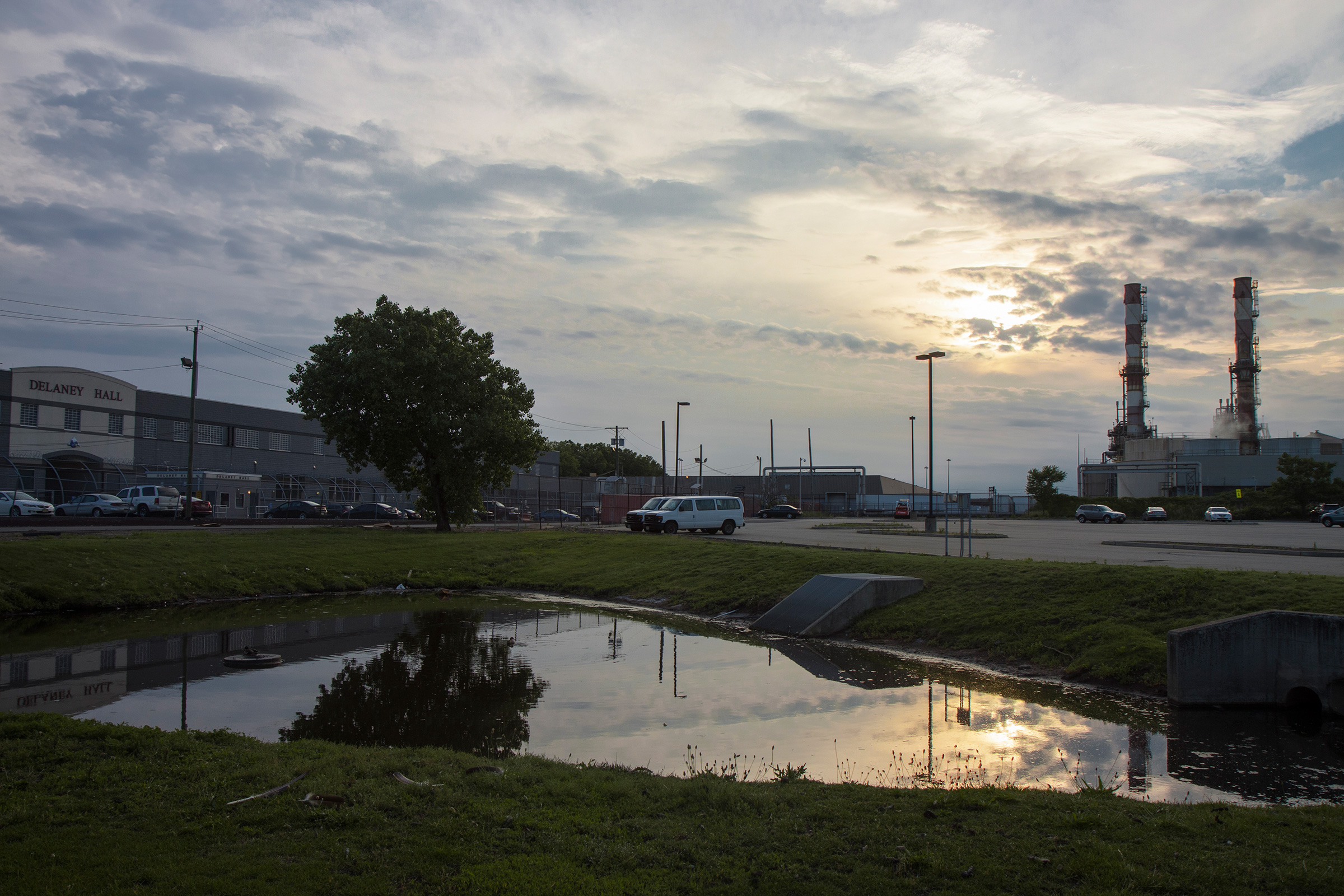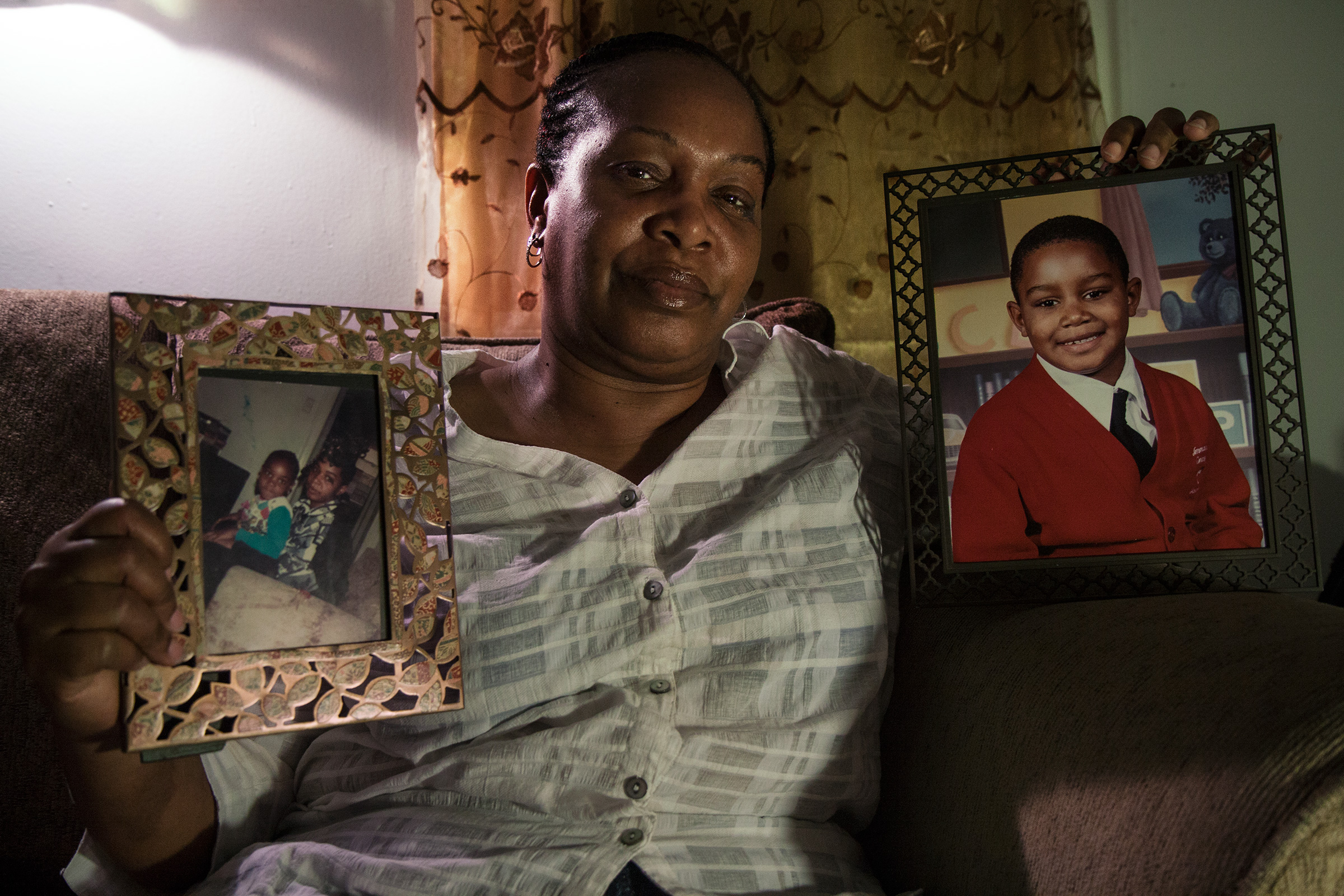
Immigrant Detention
































Detained: Asylum Seekers in NJ Detention Centers
Venture down the winding, cratered truck routes of an industrial wasteland, where smokestacks sprout from vast plains of concrete, airplanes in ascent nearly skim the sagging power lines, and workers sit alone in rest-stop diners gazing out grimy windows that frame this barren landscape just beyond the New Jersey Turnpike.
Not far from a here, a young woman treads slowly through the wide passageways of Terminal A, the rhythmic sway of her gait is steady and determined, her head held high, the bold pattern of her ankle-length cotton dress starkly contrasts the sterile halls of the airport. In one hand she clutches a passport bearing the name of a country she knows she will not return to anytime soon — her country, Burkina Faso. In her purse, a manila envelope containing prepped documents for an asylum application. She approaches the officer at border control, shows her passport and student visa, and in a soft voice, tinged with French vowels and West African cadence, and laden with longing for refuge from the domestic violence she has fled, she asks for asylum.
Asylum seekers are given no forewarning of the American immigrant detention system. They do not yet know how they may be questioned for hours in the cramped Customs office, without the aid of a translator. They do not yet know how they may be coerced into signing away their freedom, and shipped to a detention facility in an isolated area. They do not yet know how they may owe thousands to an immigration lawyer, wait months for bureaucracy to dredge on, and have their case rescheduled for lack of evidence. They do not yet know how it may become impossible to speak to family in their home country because calling cards in detention are fraudulently overpriced. They do not yet know how they may miss the birth of nieces and nephews, or even their firstborn child (alien relatives can only be petitioned for by Green Card holders, and even then, it is a process that can take years).. They do not yet know, and may never know, how all immigrant detention centers are privately owned, and fulfill a contract which mandates that 34,000 beds must be filled at all times by the Department of Homeland Security (DHS). They do not yet know, nor do the American people know, that the two largest private prison corporations, CCA and GEO group, majorly influence political lobbying on immigration law and are grossing investments for many US banks, universities and other institutions. They do not yet know that they will not breathe fresh air or see the sky again for months, or in some cases, years.
A discrete sign bearing the letters CCA in red stands before a large warehouse. The Corrections Corporation of America (CCA) is the largest private prison company in the country, and its immigrant detention facility in Elizabeth, New Jersey holds over 300 men and women. A second immigrant detention center called Delaney Hall, owned by the GEO group, sits adjacent to a prison and a nuclear power plant just fifteen minutes away (Delaney Hall closed in 2016 and inmates were transferred to neighboring detention facilities). This is where Michou, a 28 year old woman from Burkina Faso, waits for her freedom. Each year more than 400,000 asylum seekers, undocumented and documented immigrants are forced into the American immigrant detention system.
Photos published in Documented NY Immigration News